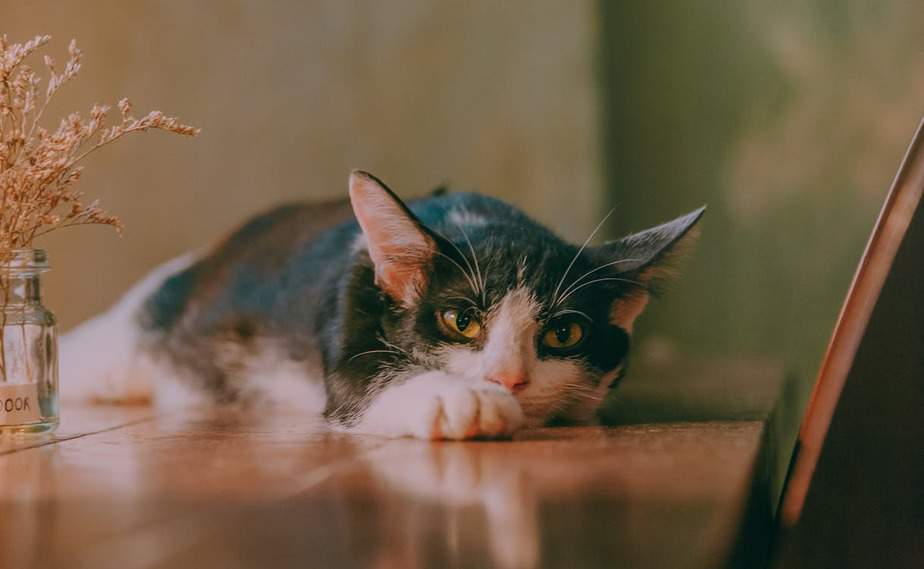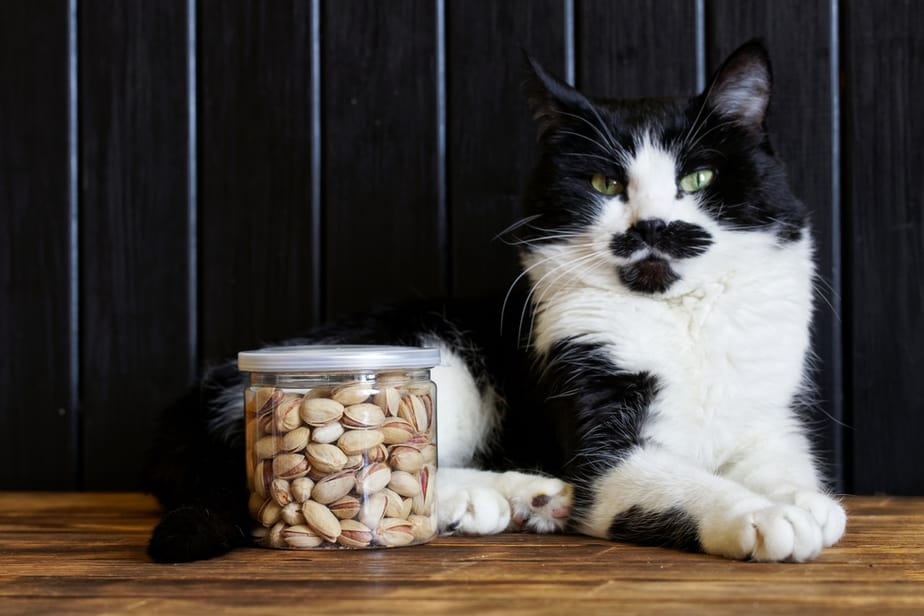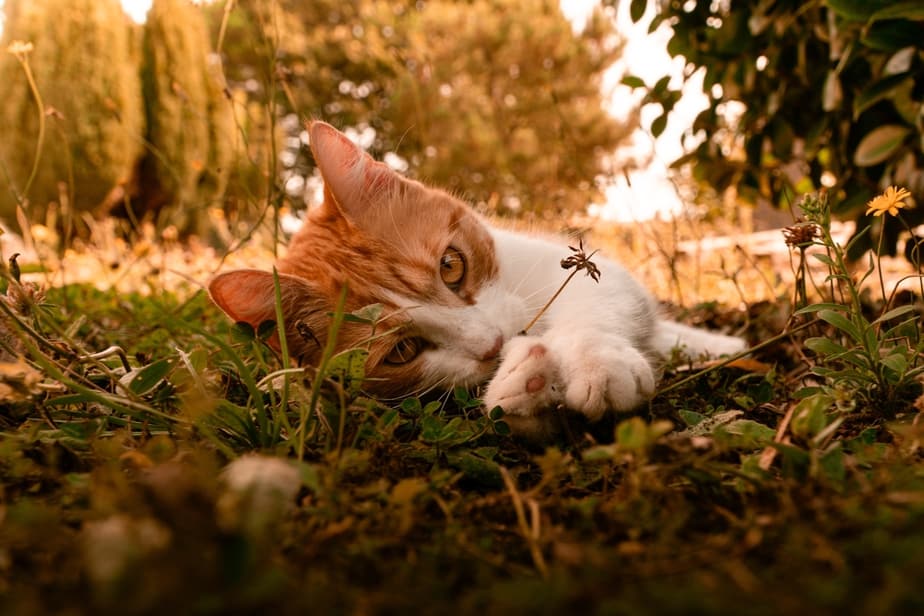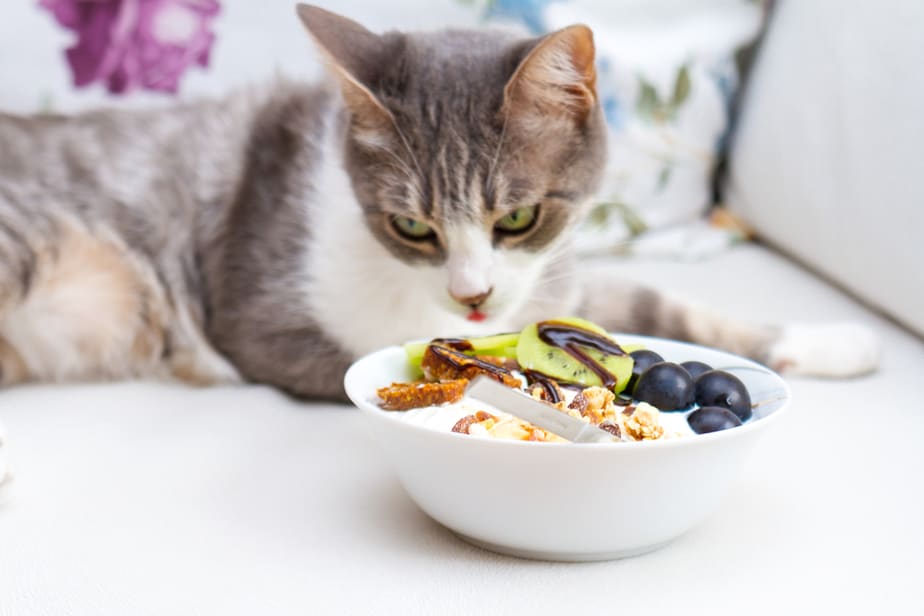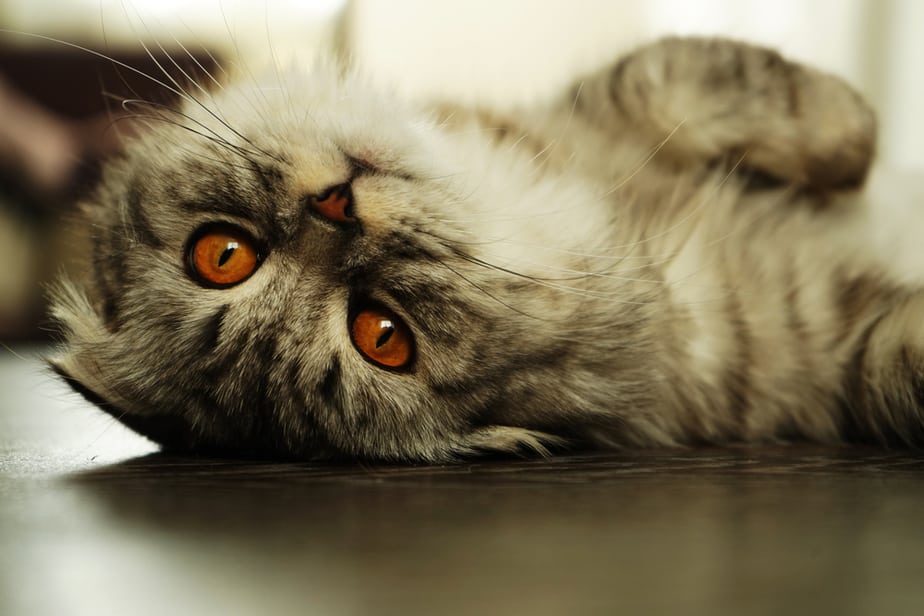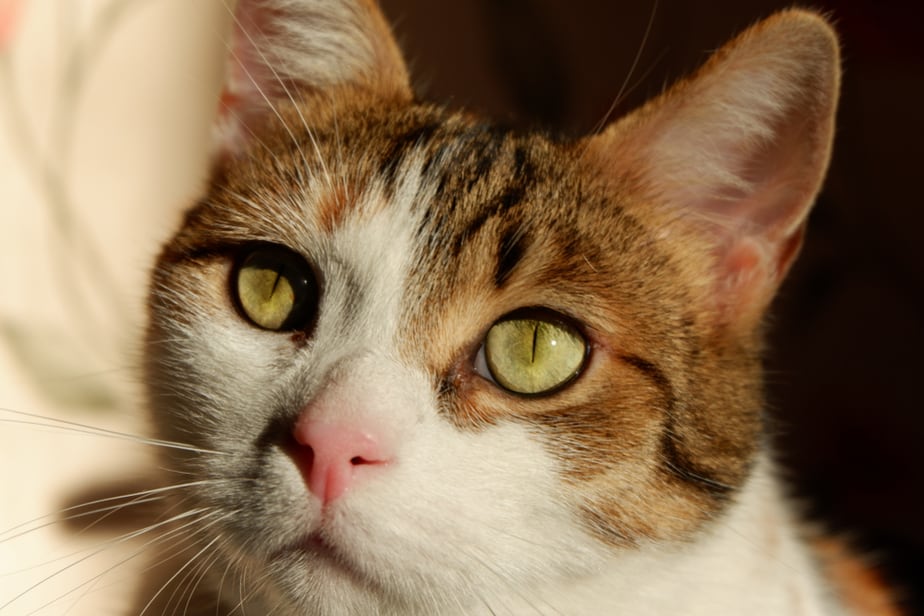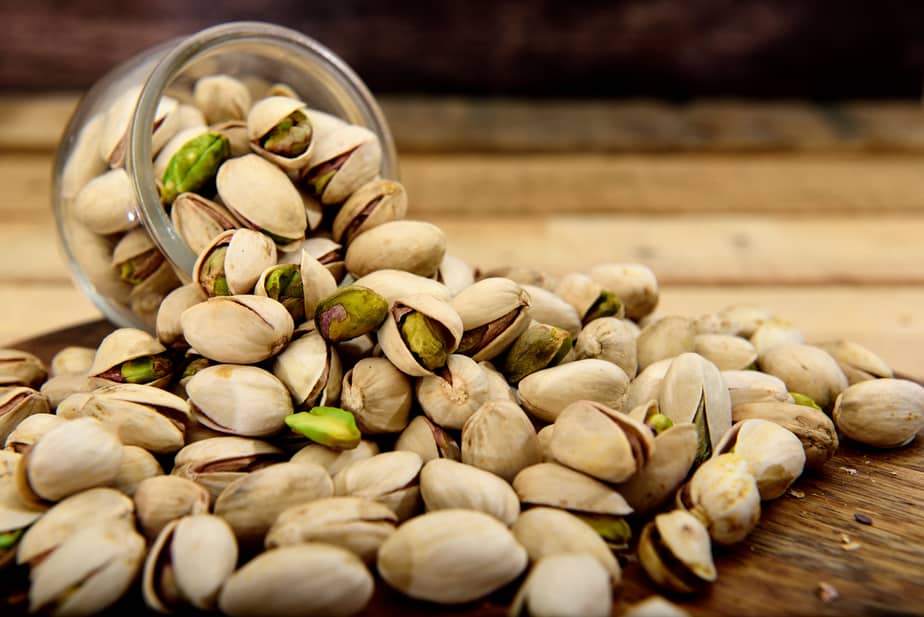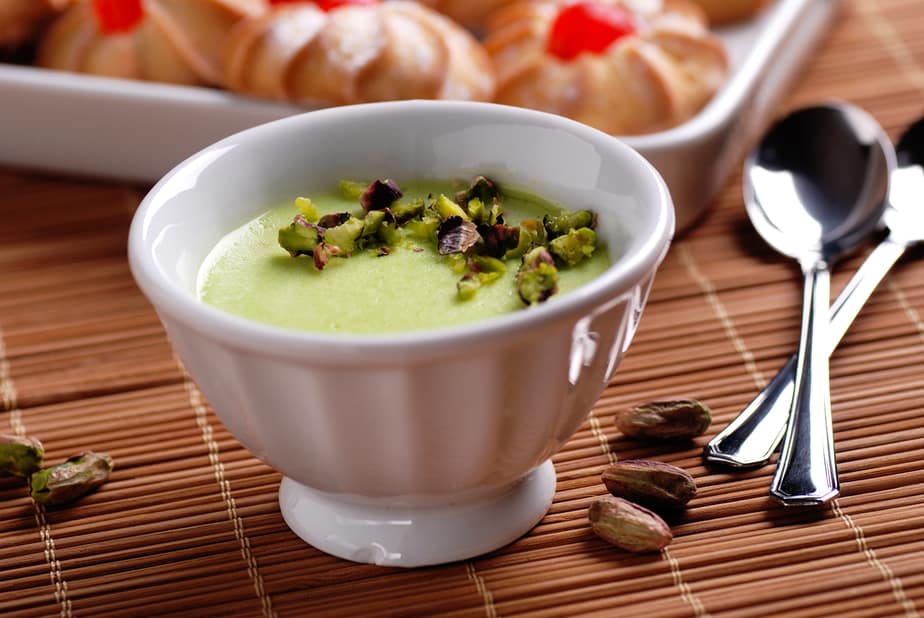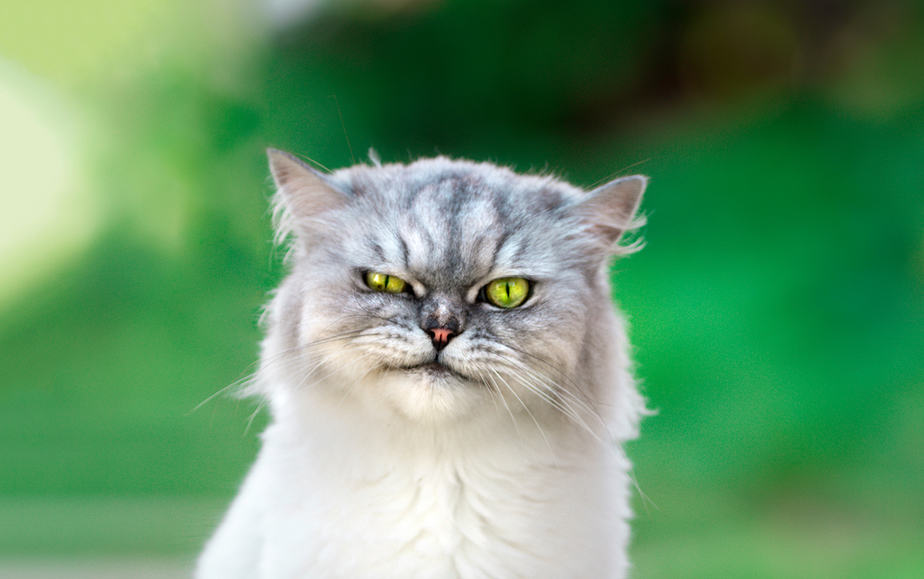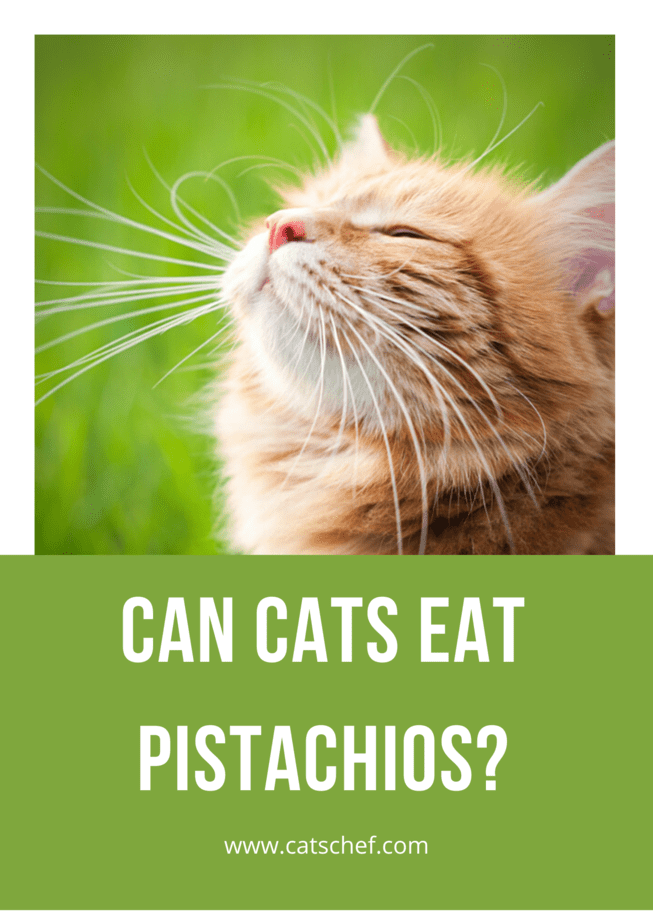📖 Table of Content:
We all love snacks, there’s no denying it. We’re especially overjoyed when these are healthy ones, such as pistachios. But, since nuts aren’t their natural choice of food, can cats eat pistachios?
We like to think that our pets can indulge in the same food as we do. However, this isn’t always the case because they’re built differently than we are.
Although we like to spoil them, we must ask ourselves whether cats can and should eat pistachios before we introduce them to these nuts. It can be challenging to resist the urge to share some of our food with our furkids, but it’s sometimes necessary.
You don’t want your vet bills skyrocketing – we all know how hard that can be on your wallet – not to mention, seeing our four-legged friend suffer. So, is any amount of these nuts allowed for our feline companions?
Can cats eat pistachios safely?
If you’ve been munching down on some pistachios and your cat seems to have her eye on them, what should you do? You know she’s going to fight for something she finds interesting, so you must offer her a peace treaty.
Is this going to be sharing your nuts or are you supposed to bribe her with some cat treats? Although pistachios are proven to be healthy for humans, you must remember that there are certain health hazards for felines.
Plant material isn’t something cats usually benefit from. They’re obligate carnivores, so meat is their top food choice. Nuts and other foods that can serve humans as a great addition to the diet aren’t usually welcomed by cats with arms wide open.
High fat content
When eating pistachios, you must note that these delicious snacks are packed with fat. Both you and your furry friend need certain amounts of it to keep healthy, but what happens when you have too much of it?
I think we all know the answer to that one and it’s not something we want to hear. It’s unlikely your pet will gain weight from eating a couple of pistachios occasionally.
However, don’t forget that this can be detrimental to her health in the long run. Healthy fats found in foods like beans are supposed to benefit her growth and development. These include a source of energy and shiny skin and fur. Without fat, your cat is likely to be inactive and lethargic.
Despite these health advantages, big portions of pistachios are unlikely to serve any great benefit to your feline.
Obesity is a big problem for active animals like your pet and it affects their agility. Moreover, it causes their joints to strain more, which can lead to arthritis.
You don’t want this happening to your fluffball, so it really is best to rather remove these nutty treats from your kitty’s reach.
But, can cats eat pistachios at all, even if it’s just one nut every now and again? I know this question still concerns you, especially if you have a stubborn pet. Don’t worry, a few stolen pistachios aren’t likely to be the reason for alarm.
What else can be found in these nuts?
I know how cats can be strong-headed and quite literally nuts over some human food. This calls for some desperate measures such as keeping your pistachios on the top shelf.
You wouldn’t think you’d need to keep these out of your cat’s reach, but here we are. The thing is, apart from the fat content, pistachios are also high in dietary fiber. And before you ask what’s wrong with that, let me explain.
Fiber is one of the essential nutrients for both humans and felines. It helps with digestion and moves food through our tracts more easily. Where’s the problem then?
However, we also know that balance is required in everyday life, and also in our diets. This applies to nuts like pistachios because dietary fiber is abundant in them.
Despite it having certain health benefits for your pet, make sure you don’t overfeed her with fiber-rich foods. Too much fiber can cause some adverse effects.
Too much dietary fiber can cause a laxative effect in cats, making them dash for the litterbox. Don’t be surprised if she begins experiencing symptoms such as diarrhea and vomiting.
As odd as it sounds, too much fiber can also be the reason for constipation in felines. This isn’t such a lovely case scenario and you’ll probably have to intervene.
If your pet is having gastrointestinal problems like these, make sure to take a trip to your vet. You don’t want your furbaby to suffer any longer!
Pistachios are a choking hazard!
I feel like this should be obvious, but we all need a reminder every once in a while. If your cat is similar to mine, then you know how much trouble it is diverting their attention from your food.
It’s a particularly hard task when the food is small and round like pistachios! If your pet has decided it would be a good idea to play with these ball-like nuts, then you should be worried.
In the heat of the moment, cats may swallow whole pistachios, shell and all, and this is where all hell can break loose. You go into panic mode and so does your cat, flapping her paws and trashing all over the place.
I know how disturbing it is to watch this happen and I also know how difficult it can be to address the situation. Their hard texture is something you should really watch out for, especially when they’re not peeled.
Also, pistachios can get stuck in their teeth, just like pecans or any other small nuts. Cats are not a fan of toothbrushes, don’t ask me how I know. Therefore, don’t let yourself get into this dreadful situation, EVER!
Now, if this wasn’t enough to stress you out, pistachio shells can also get stuck in their intestinal tract because they’re hard to digest. Your feline isn’t equipped to handle and break down this foreign object on her own.
If she can’t get the pistachio out of her system on her own, then I’m afraid you’ll need to call your vet. And this only adds to that bill we were talking about.
This is one of the main reasons cats cannot and should not eat pistachios.
This yummy can hurt their tummy
Although pistachios are good for humans, they can cause some problems in your feline. The trouble arises due to them being a calorie-dense food.
If your cat munches down on these and you don’t stop her, she will likely experience some gastrointestinal distress. Your pet could show signs of an upset stomach, ranging from vomiting to diarrhea.
Because it’s high in calories, this food is known to cause bloating – and we all know what follows after that. Those gases aren’t pleasant in any way, but you’re on your own if this happens.
If she doesn’t manage to wriggle out of this situation somehow, your feline could experience stomach cramps. Therefore, keep her away from high-calorie foods.
Besides, pistachios may be contaminated by salmonella and aflatoxins, which is certainly not good news. The most probable reason for contamination is when pistachios fall to the ground or when their shells split.
Aflatoxins and salmonella can wreak havoc in your feline’s body and lead to various problems. If this occurs, your pet will need to undergo treatment by a veterinarian.
Either way, your cat may find herself in this unenviable situation if indulging in these nuts. So, instead of asking whether cats can eat pistachios, you should think about the ways they can be harmful.
Can cats eat processed pistachios?
When I say processed pistachios, I mean store-bought ones. Now, we know that natural and fresh-picked foods are always the best choice, but sometimes we’re forced to buy them from our local shops.
We all know that buying instead of harvesting our own food has its advantages and disadvantages. It’s amazing because it takes less time, the food is available in many places, and you can take however much you want.
On the other hand, it’s usually highly processed and oftentimes low-quality. Commercial foods offer quantity, but the value they hold is highly debatable.
Besides, they’re packed with natural and artificial food preservatives like salt, which are used to keep products fresh and prolong shelf life. They help preserve color and taste, and enhance flavor.
We’re pretty much used to it. But can cats eat these processed foods, and in particular, pistachios? What are this food’s downsides?
One of the reasons for concern is the preservative, sodium, or as we know it: salt. Usually, products like these are packed with an excessive amount of salt to add to the flavor and keep it fresh for as long as possible.
This can be a threat to your cat’s health because it could bring about sodium poisoning. Signs of sodium poisoning include vomiting, diarrhea, excessive urination and thirst, dehydration, as well as drooling.
In severe cases, your feline might end up experiencing tremors, seizures, and even a coma. Now, this isn’t likely to happen if she eats one or perhaps two of these nuts, but still, keep an eye out for any of these symptoms.
Of course, rather err on the side of caution and make sure the pistachios are out of her reach. After all, you know your little guzzler will try to eat anything she can get a hold of.
Can cats eat other foods that contain pistachios?
Okay, cats shouldn’t eat these nuts in their raw form, but what about pistachios as an ingredient? These little snacks can be added to a variety of dishes, such as breakfast porridge and other, sweeter ones.
There are no immediate alarm bells when feeding pistachio-based dishes to your cat. That said, the rest of the ingredients are more concerning than the pistachios themselves.
When you’re a cat parent, dangers lurk behind every kitchen corner. And it doesn’t help that these little devilish creatures are curious by nature.
So, if your pet has a lick or two of these treats, here’s what you should know:
Pistachio ice cream
This divine, summer treat is something we all look towards to. There’s no denying that ice cream makes us feel special because of that sweet flavor it holds.
However, it’s not recommended for felines, and for various reasons. As we know, ice cream is a dairy product. Even though cats are represented as milk-lovers, it’s a false picture.
Felines are lactose intolerant and there’s a high chance your pet will get the runs after eating this frozen treat. Not to mention the sugar content found in it, but you must be aware that it can be of detriment to your furry friend.
Thankfully, cats can’t taste the sweet flavor so they don’t yearn for ice cream for that reason. It’s actually the high amount of fat that attracts these little creatures.
Nevertheless, ice cream is off-limits for cats. Just like with frosting, the high sugar and fat content, as well as dairy content, make this treat a no-no for our pets.
What about pistachio pudding?
I don’t want to be a killjoy, but think about it. If ice cream isn’t allowed for cats, why would pudding be safe for your feline?
While the pistachios aren’t alarming in this dessert, can cats eat it because of other components?
Puddings are a great treat for us, but I’m not sure if your pet will agree with you. Sure, she’ll probably beg for a lick or two just like mine does, but be strong to resist the urge to give in to her wishes.
Pistachio pudding, just like vanilla pudding, contains high dairy levels. As is the case with pistachio ice cream, dairy is unfortunately not welcome in the cat world. Also, it’s packed with artificial and natural sweeteners, which don’t benefit felines in any way.
Now, don’t feel discouraged by this because there are plenty of other tasty treats for your furball. However, this doesn’t mean that other flavored puddings are safe. We know for a fact that chocolate is a big no-no, but rice puddings are also a reason for concern.
So, to confirm whether or not your cat can eat pistachio pudding, I’m sad to say it’s a big NOT.
Can cats eat pistachio fudge?
You’re probably aware by now that sweets aren’t your cat’s best friend. Still, I’m more than glad to help you realize just how much trouble some of these desserts could cause for both you and your pet.
No one wants to risk their feline getting sick, so it’s best if you follow the advice outlined so far: no desserts, not even pistachio-flavored ones.
Pistachio fudge is not really different from the rest of the sweets we’ve covered so far. It contains ingredients that are prohibited in a feline’s diet, such as butter.
Heavy cream, chocolate, salt, and many other components are all red lights when it comes to your furry friend. We know salt can cause sodium poisoning and dairy contains high amounts of fat.
Speaking of sugar, it’s also detrimental to your pet because it affects her teeth and weight. Obesity is a big problem for your pet as it can lead to diabetes.
If your cat consumes too much sugar on a regular basis, you may want to have her dentist take a look at her sharp razors. Sugar and sweets are known to cause tooth decay in felines.
Chocolate and any desserts such as chocolate cake are poisonous to your pet. So, even if pistachios aren’t your main concern in this dessert, you have more than enough ingredients to be worried about.
Your cat will be better off with some dried fish or other homemade cat-friendly treats. Choose foods that have a higher nutritional value for her instead of human snacks.
In conclusion
So, let’s be clear – “Can cats eat pistachios?” Long story short, they can but they’d be better off without these nuts as they can bring a lot of trouble as well. They’re high in fats and calories, which can be detrimental to your furchild’s health in the long run.
I know we tend to give in to our pets’ desires and spoil them with some human foods. However, keep in mind that these can end disastrously and your pet could easily end up at the vet’s office.
Nuts are beneficial to humans, but cats can get an upset stomach because it’s not a carnivore’s main dietary choice. Also, raw pistachios carry the risk of contamination with diseases.
Salt poisoning is possible too, especially in store-bought nuts. Excessive amounts of salt can harm your feline and cause major health conditions.
Other pistachio-flavored foods such as pistachio ice cream, pistachios in porridge, pistachio fudge, and others are a no-no. These are off-limits because of the dairy and sugar content.
So, one or two nuts are safe, if given on the odd occasion. But let’s not forget that even though cats can eat pistachios from time to time, they’re also a choking hazard.
Pistachio’s hard shell and texture aren’t fit for your feline’s small teeth, so they’re likely to stick on her razors. Not to mention the trouble if they get stuck in her throat or intestinal tract!
